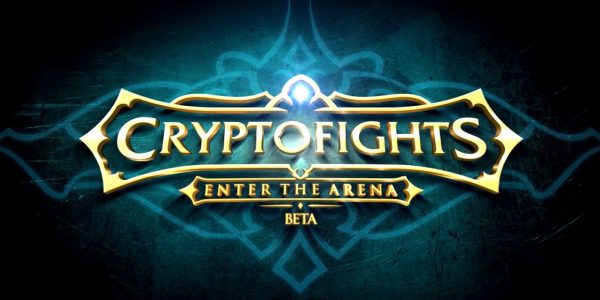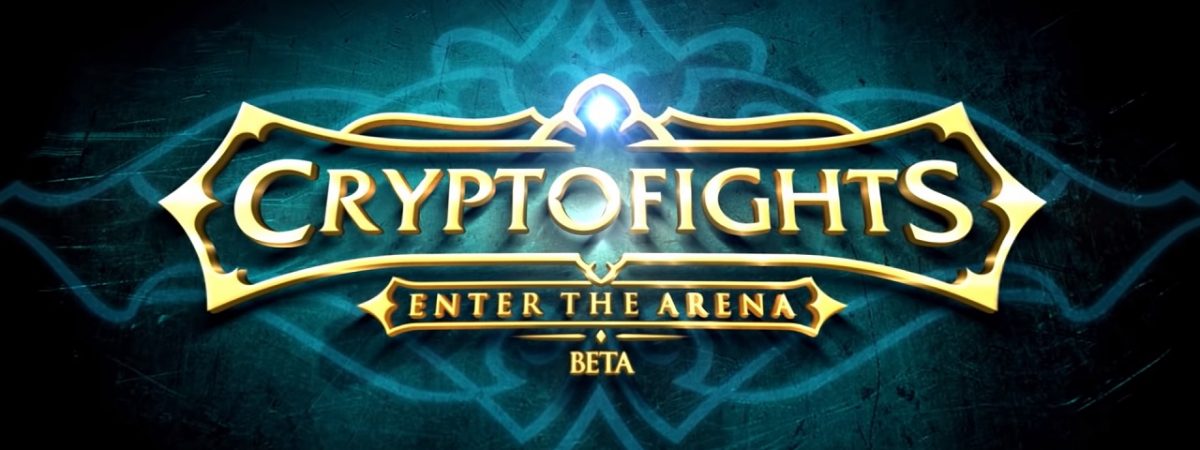Kronoverse is an independent start-up game development company with a grand vision, and while many studios likely fit that description, theirs is a particularly unique one. Moreover, it’s a vision which has recently secured investment from a very notable backer. The studio is currently working on CryptoFights, a 3D mobile fighting game built on blockchain technology. Last month, the studio announced that they would be using Bitcoin SV to power their networking layer, and shortly afterwards, the studio announced that they had secured investment from Calvin Ayre, the online gaming entrepreneur billionaire who founded CoinGeek and Ayre Group, and a backer of Bitcoin SV.
We recently had the opportunity to interview Adam Kling, the CEO of Kronoverse, as well as David Case, the studio’s Backend Architect, about CryptoFights, the new investment, and their vision for how blockchain can revolutionise not only game design, but the entire gaming and esports industry.
VGR’s Interview with Kronoverse’s CEO and Lead Architect
So, just to get started, for the benefit of any of our readers who may not already be familiar with CryptoFights, could you give a brief explanation of how you use blockchain in the game?
Adam Kling: “Well, I’ll start and kind of introduce CryptoFights, and then David can kind of talk more about the technical side of things; he’s probably more suited for that. So, Cryptofights, essentially, is a one-versus-one competitive fighting game. We actually plan to open that up to, potentially melee fights where it’s one-versus-three, or one-versus-all, and you basically create your character similar to an RPG game where you can name the character, pick the hairstyle, beards, colours, etc., etc. and then you actually create that character and that character exists on the blockchain.
“And then, you take that character, and you have weapons and armour that you can equip, and all of the weapons and armour are actually ownable and tradeable, so we kind of have a whole economic system around the weapons and armour. Then, we base the fights similar to Dungeons & Dragons where we roll dice to figure out who goes first, if you hit that person, and then how much damage you do. There’s going to be a whole lot of other things, like an action system where you can take real-time actions during the game. So, if I was to boil it down, if you could think of something maybe like a Street Fighter, but turn-based, and where you can actually equip items to the character, if that makes sense.”
David Case: “And to take that a step further, so yes, our characters and our weapons and armours are all tokens on the blockchain, but also every action that is taken by a player. We do have a kind of trusted component that we run that does also commit some random number generation and time-stamping services. Every move that a player makes and every feedback from the server are recorded as blockchain transactions, and it actually builds a graph where each data points to the other states of the data, so you can kind of replay a whole battle by watching the graph.”
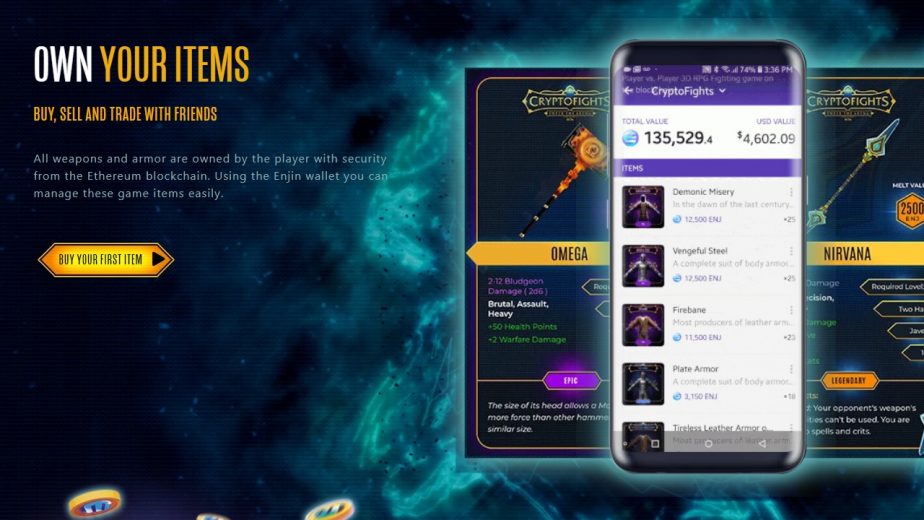
Right. From reading through the press release, one thing that was cited a few times was the benefits that gamers themselves would find through the application of this sort of technology. So, can you explain a bit about how gamers themselves really benefit from the use of blockchain, both in CryptoFights but also in general?
AK: “Yeah. There is actually a very wide field that this could apply to. The one which we’ve had the most experience with, interacting with gamers so far, is item ownership, and that really unlocks a gamer to be able to actually freely trade, and if you think of kind of how Steam controls all of the items that exist in their platform, you really have to get permission to transfer ownership. But, if Steam ever wanted to lock it down or it went away or whatever, you really don’t own it at that point. Putting it on the blockchain kind of has this external decentralised party that no one owns, so that you will forever own that token or that game item.
“The other thing that David pointed out, with the moves, and especially with our technology, is that if you can imagine a game like Dota 2 or League of Legends, where you have highly competitive teams and tournaments where every single move is a data-point, all that data, like for example in Dota 2, exists in Steam or with Valve’s servers and you have to download that data and then that gets aggregated out and people analyse that.
“With our solution, everything is public, so every single move that gets taken in a competitive live game would be a data-point that would basically be live globally. That could be analysed, it could be wagered on, like if you want to bet that one team or one person from a team does this thing at this time or whatever you want to do, all that data’s available to use externally. Maybe David can kind of expand on that with some of the possibilities, because there’s really so much that you can do when you have all that data available.”
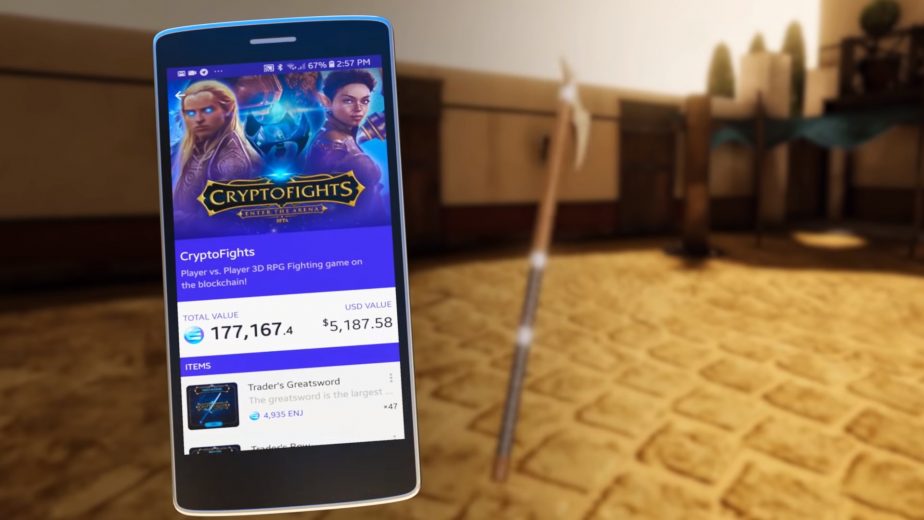
DC: “Yeah, it’s really just the fact that it’s on an immutable ledger. So, as soon as a game or a move gets recorded, as soon as an action gets recorded, as soon as a response happens, they’re immediately recorded on a public immutable ledger. So, not only are they available, they can’t be made unavailable; it’s unchangeable.”
AK: “Yeah, that’s right – nobody would be able to control that. So, when you go back to the Steam example is that, you know, this is any game, anything that happens, is permanently there and there forever, essentially. One of the other things that we can do for gamers is the concept of evolving items. So, what that means is, let’s say in CryptoFights you buy a beginner sword and that sword is made out of wood, and you’re level 1. So, you fight and you fight and you get up to level 2, level 3, and then you hit level 5 and now, based on rules that we can set in the Kronoverse, which is what we’re kind of calling it but it’s really rules that we preset in this decentralised world, that that sword can now morph and evolve into a steel sword and have extra abilities or extra cosmetics attached to it. And this can happen outside of our game.
“So, that means that that sword, since you own it and its token lies on the blockchain, you could go into some other RPG and use that same item, and that kind of goes into the concept of the game multiverse, which is really the inspiration from Ready Player One. Just except not having one company own everything! So, that kind of goes into the really cool stuff that is our grand vision where we have gamers truly own their data, their character, their items, and games don’t really become a software product that you download, games become kind of network code.
“Because, if you think a character is really like a 3D model, maybe some sounds, some rules attached to it, and we can actually put all of that into the blockchain and start to create that Ready Player One kind of system where games are really just like a universe that you can kind of hop from island to island and do whatever you want with and take everything with you. I mentioned this before, but doing that creates real economies. We’ve already actually been… we have like a beta marketplace where we had a pre-sale and people were trading their items back and forth and, you know, people were speculating on items and profiting with analytics and stuff like that, so it becomes something like a stock market for game items based on the demand of the collectable value of items too.”
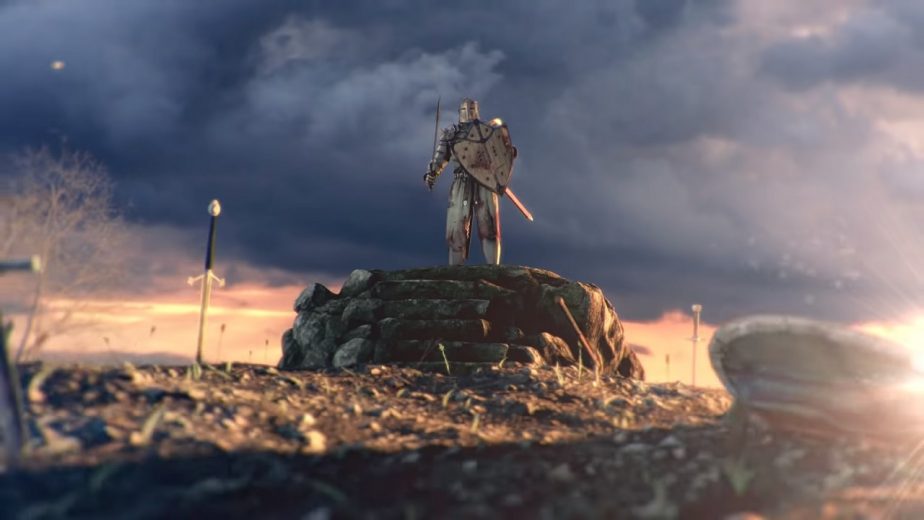
That’s really interesting!
DC: “There’s just so much stuff! One of the things to throw on that too is each of the items themselves can attain their own provenance. So, you can actually, at any point like fifty years down the road, you could actually buy the sword that won the tournament of champions in 2020 or that slew the beast of whatever. I mean, every item, actually its entire history lives on, and so it’s audible and stories can be told and there can actually be, in a fantasy-type world, something like Sting or… pick your sword that’s got a name and a history to it! That can actually be recorded as well.”
AK: “And that goes to the economics. If you started from that wooden sword and you’ve worked it all the way up to the Fiery Sword of Devils’ Honour, or whatever, and it’s beaten many many bosses and won tournaments, now you’ve increased a nothing value to an incredible value item just from your effort. That really kind of goes into a lot of the equations in games; the effort is really where… I guess you could say monetise you. You know, you have to put in time, and putting in that time is really to the benefit of the developer, and now we’re trying to unlock that for gamers to be able to actually keep that value and then own that value of all of their time.”
So, what would you say are the primary benefits of using what’s called Bitcoin SV, as opposed to the other possible platforms that are out there for this kind of game?
DC: “First of all, and this is quite possibly a short-term benefit, but it’s really cheap to transact upon, but that is kind of part of their long-term goal as well. But that’s not the big reason, that’s just kind of a nice little bonus. I think the one thing that has really drawn us towards that world is really getting a deeper understanding of how Bitcoin works. So, there’s essentially three high profile forks of Bitcoin right now and BTC, which is the biggest one that most people think of when you say the term ‘Bitcoin,’ is very crippled from a transactional standpoint, in that they’ve got very aggressive limits put on how much data can be transacted, which then causes the cost to transact to be very expensive.
“So, BSV is kind of the exact opposite approach to Bitcoin. They use the same underlying consensus algorithms, the same underlying technology, the same incentive model mostly, although there’s… essentially, both BTC, which is the #1 one and then Bitcoin Cash which is the other one, have both decided to kind of take the core protocol and go slightly different directions with it, whereas BSV keeps forking off whenever these other ones have made decisions to change the protocol, and they’re trying to just stick with the original and then scale it massively.
“But, with that, they have kind of removed a number of the limits that are placed in the other forks, and so per transaction you can store up to 100 kilobytes of data, which means that in transactions on the network you can store some really interesting information, and you can build a much better graph of data where you’re pointing at data that’s stored at different places in the blockchain and so, you can really do some pretty advanced stuff. It couldn’t be done in the other Bitcoins.”
AK: “Just to add, with Ethereum too. With Ethereum it would be way too expensive. I mean, not even possible really, to do what we can do with Bitcoin SV.”
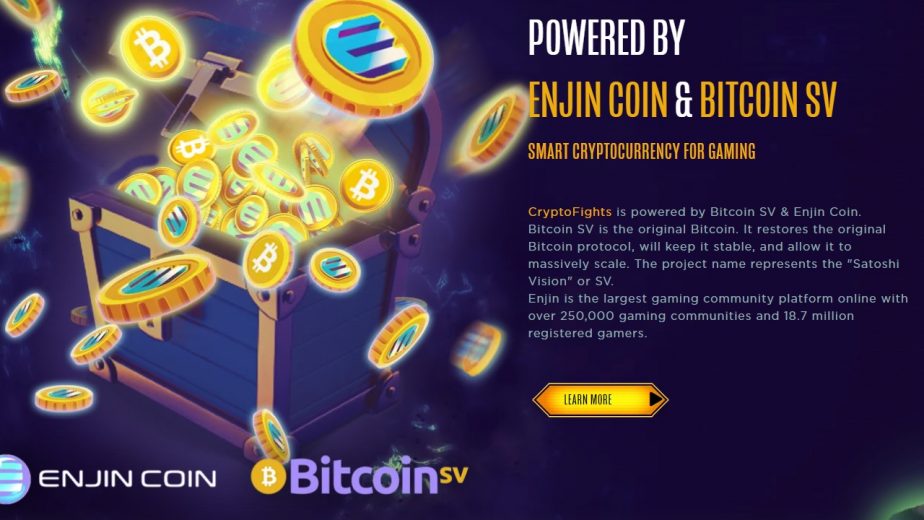
DC: “But then there’s some aspects of Bitcoin that, because it has grown up to be this expensive, really limited thing in everyone’s eyes, a lot of developers – myself included, for about a year – kind of missed the underlying power of it as a development platform, because Bitcoin is really… it’s almost analogous to the core base TCPIP internet protocol in its raw utility, in that you can kind of put whatever you want on top of it. But, with that also includes a whole payment mechanism, which really changes the world in a lot of ways.
“It’s like an internet protocol, a network protocol, but it also is immutable, so it keeps all the history, and it’s got payments tied into it, and those two things right there – and it’s permission-less! So you don’t need permission to get onto it, you don’t need anyone else to get it – so those three things allow people to interact in really world-opening ways, and that’s what we’re really trying to do and enable is enable ourselves and other game studios to be able to work things together in a very open way and build a really powerful world.”
AK: “Yeah, kind of like an open-source gaming network. And that goes into the multiverse that I talked about; we don’t want to give permission to every single person that wants to build on this, we want to have it very free and open to the point where it’s kind of like an organism that can evolve on its own.”
So, to go back to the press release and the more immediate announcement, was this new investment from Calvin Ayre and his foundations something that was sort of unexpected, or had it been in negotiations for some time?
AK: “It was in negotiations but I think it’s a really good fit. They’ve been watching us – because we made some news by adopting Bitcoin SV – so, I think they’ve been watching us and I think it’s a really good fit for the company. I think it just sort of organically happened.”
So, what are you hoping that Kronoverse will be able to accomplish, both short-term and long-term, with this new investment?
AK: “Short-term, this allows us to really kind of up our game with CryptoFights; polishing it up a lot more. As you know with start-ups, it’s tough to compete with heavily-funded studios that can hire the amount of artists and programmers to really make something look nice, so it’ll allow us to up our game with the cosmetics and also allow us to flesh it out as we really wanted to, and then it also starts to build up Kronoverse, which is our grand vision. Using CryptoFights as kind of our reference game, the Kronoverse is going to be really nice, because now we can actually demonstrate what the Kronoverse is really about.
“So, we’ll have a nice-looking game that shows other developers what they can build. Going back to that example, the character that you create in CryptoFights – some other developer could create an RPG or adventure game or a fighting game with the same characters. So, there’s really cool stuff that can happen and we want to kickstart this, and I think this is a great first step for this vision. We really want to innovate the gaming space.
“I’ve been a gamer for a long time, and I’ve kind of watched how this has all evolved, and there really isn’t something game-changing like this. There’s a lot of blockchain stuff going on, but they all are handicapped in some way, and this is the struggle that we had with it when we first started out is that we were experimenting with a lot of different technology and we always kind of hit these dead-ends or these paths that were just so complex and expensive to build out, and we really found a great solution with Bitcoin SV to really reduce development time and also open up even more than we could before. So, I think this is going to be exciting going forward! We’re really excited for the next year about what we can start putting out.”

Your press release also mentions the notion of transforming esports. Is that something that you’re planning to move in the direction of, and if so, what about BSV will help you to stand out in the esports market?
AK: “Yeah, the reason why esports has been really interesting for us is because of, when I mentioned the Dota 2 example, was that there’s so much money riding on esports right now. That goes from the tournaments to the game developers to the gamers, the spectators, the cash betting market – there used to be skin betting markets – and the items, and all that stuff that’s going on, and it’s very fragmented.
“You know – I never went pro or anything like that, but I got really serious at one point, and there really isn’t a whole lot you can do with that. I mean, there’s some new stuff that’s coming up where you can maybe get a couple dollars playing or something like that, but there’s really not that incentive for someone that doesn’t want to go into a house and spend the rest of – I don’t know how many months – training to be pro, and then you go get to millions. So, it’s like a pyramid system that kind of exists now and I think with esports, we can basically combine all of these fragmented parts of the industry.
“So, the analytics that we mentioned, all of the analytics that happen on this platform are essentially public, and when they’re public like that, that means anybody including you can go and take that data and analyse it the way that you want to. So, if you want to analyse teams or players, even if you want to find anomalies like a player or a team throwing their game because of a bet that they put out, you could find that, and if you wanted to wager on something that happened like that, all the data is there, you know. And if you want to… like with the items, if you want to basically just play a lot and win a lot and then basically earn a lot of items and kind of profit that way then you can.
“So, there’s a whole lot of things that are in this esports market that are kind of, you know, forming around this that we’re really pulling in and saying hey, how can we combine everything into one, and there really isn’t a good solution until you get into the blockchain space, because do we really want another company that controls everything, like in Ready Player One, right? We want something that is kind of the utopia where nobody can take away your money, take away your items, or prevent you from doing something – block you because of their policy. That’s kind of the promise of blockchain is that no one entity controls everything.
“So, that’s what I think is going to mean a lot for esports. I can imagine – one of the features that we have, for example, is that since the moves, like in Dota 2, will be one the blockchain, is that you can replay those games forever, but it also creates a live broadcasting situation where that data can basically be rendered in a custom client, kind of like on Dota 2 where you can replay a match, but that can be done live and now you have that globally distributed and it kind of cuts out, you know, ESPN or anything buying rights to that. It really kind of turns that pyramid upside down to where now the players and the developers are really at the top.”
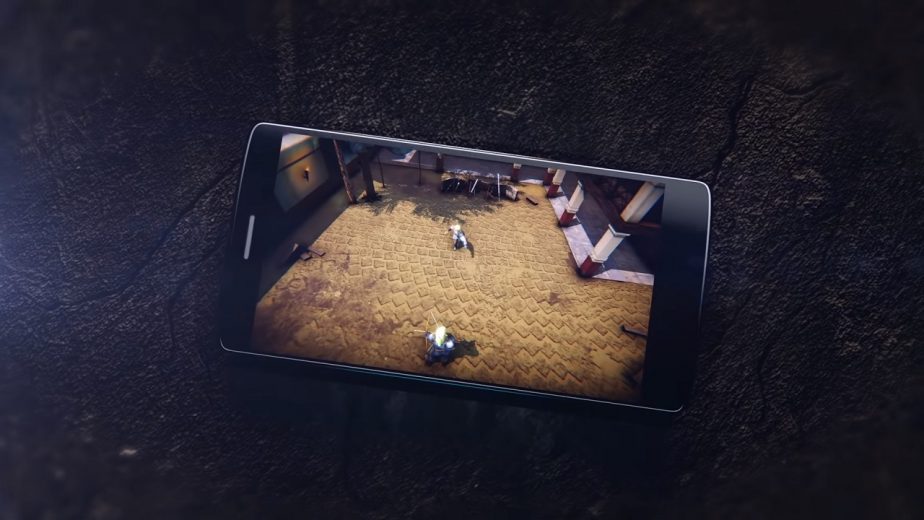
DC: “Slight tangent, but one thing Adam said which I think is cool to mention too is when you’re talking about the barrier to entry and people being able to just pick up and analyse this data and compete almost by themselves. There’s some really interesting other ideas of the ecosystem where you can take part in the ecosystem without even necessarily playing, so if you think about your old RPG games where you’re walking around and you go into a town and you visit the weapon shop and you get rid of all your old weapons and you upgrade your new weapons.
“Like, that can actually be a real role that someone is playing in life, that they are a collector and they are a dealer of antiquities, of weapons, of armour, of whatever. Essentially, you can set up your shop and be that dealer that people are going to as they level up their character, and it’s an interesting way of kind of roleplaying in a different way where real-world utility is acting as a role in this virtual environment. So, that’s pretty cool.”
AK: “Yeah. That reminds me of all those games like Second Life, but where it was, again, under that umbrella of that game. So yeah, he really is pointing to the real economics that can form out of this and the opportunities that brings for entrepreneurs that can fill the needs of the community.”
Alright, well to just to finish off, looking ahead to the next six-to-twelve months, where do you hope that CryptoFights and Kronoverse will end up?
AK: “We want to put out CryptoFights and do the full release of that and start to demonstrate a lot of this technology. Probably that puts us into about next year as we want to start taking on kind of the full vision for esports and gaming where we offer developer tools. We want to basically get independent developers to come on and start practising and playing around with this stuff and kind of seeing what they think, and building games on this. That’s really where we want to go, is to have more and more games that use this platform, to start really creating that world that we were talking about.”
DC: “And along with that is offering a number of the services that we’re using within CryptoFights for other developers to be able to mix and match and pull together… so basically, we’re going to have service offerings that allow developers to build in this without really having to understand Bitcoin that deeply and without having to understand the cryptocurrency space that deeply. Some of the features that we’re including in that are actually ways the players can play without having to have cryptocurrency; so, some kind of nice onboarding tools for those developers as well such that their players can get onboard without them needing to go to a cryptocurrency exchange.”
AK: “Yeah, we really want to eliminate all that, that’s well said, David, yeah. That’s one of the big barriers for any blockchain game is that you have the cash market and then you have the cryptocurrency, and they’re not really compatible, so we’ve kind of found some ways to make onboarding essentially the same as traditional games. So, I think that’s really exciting too; we want to hit the mass market, obviously, and that’s really hard to do.”
